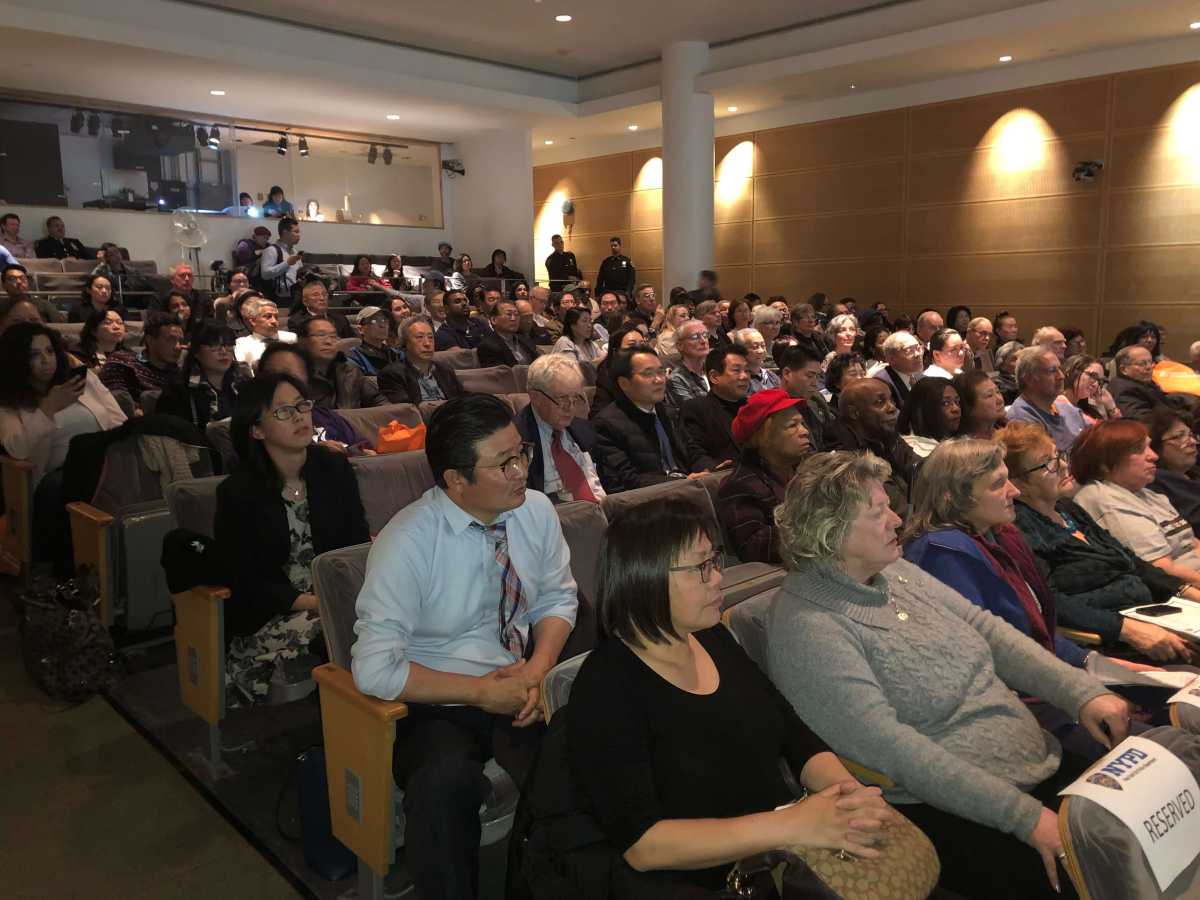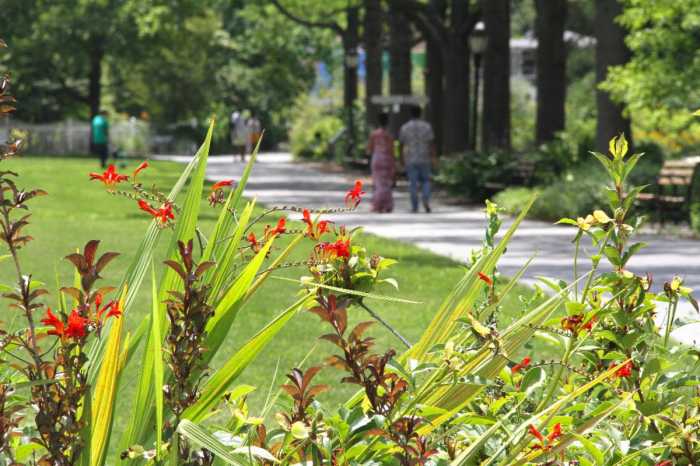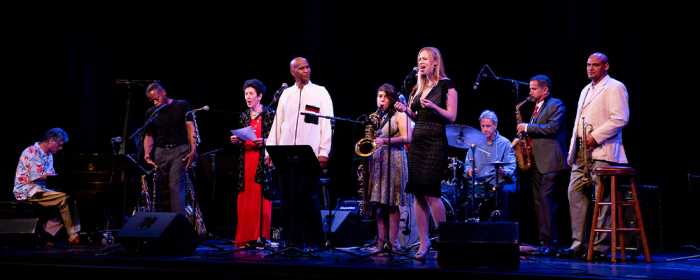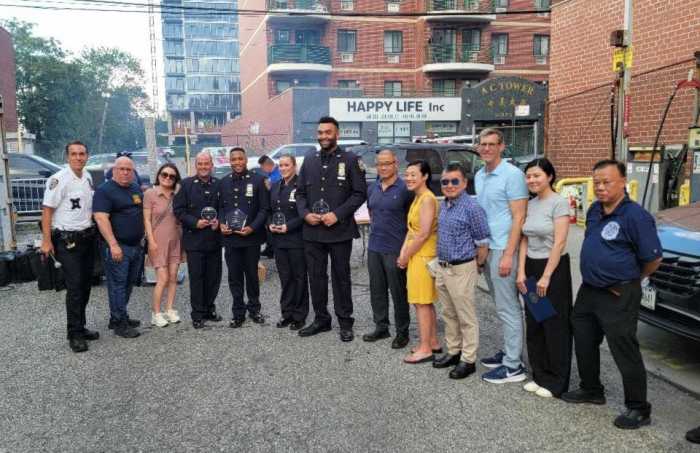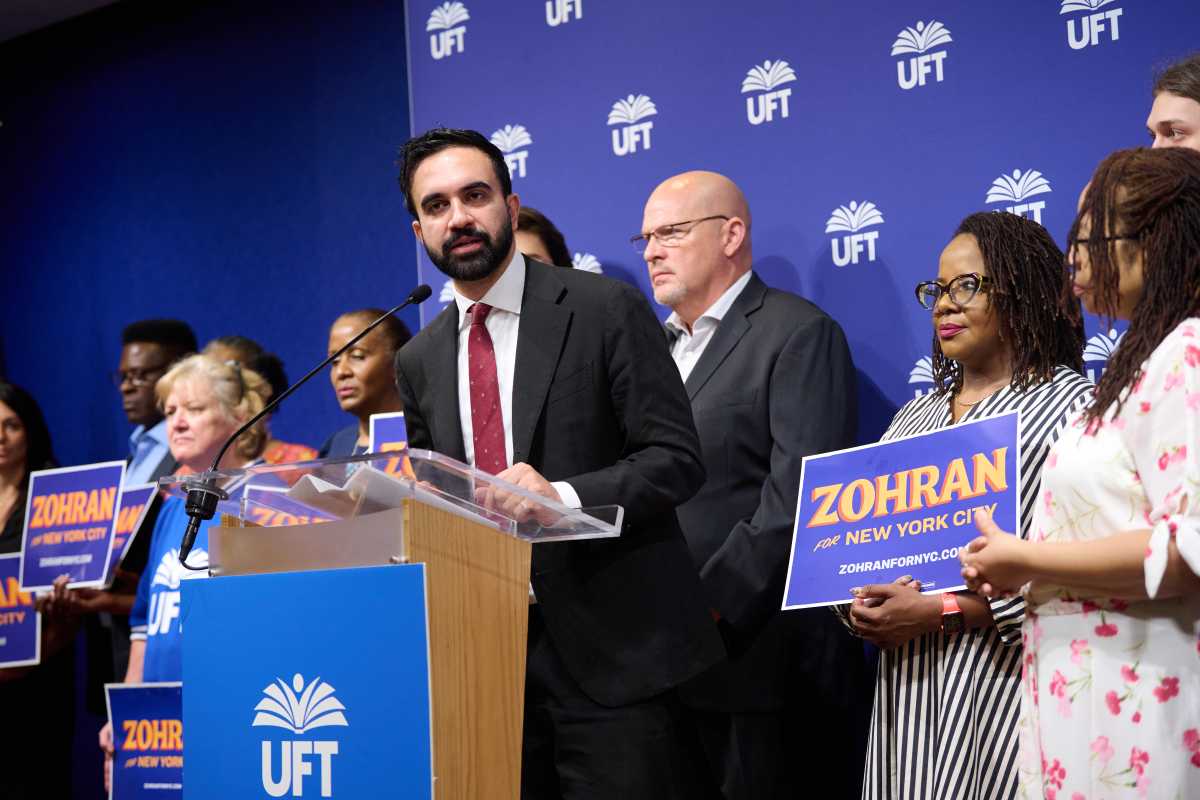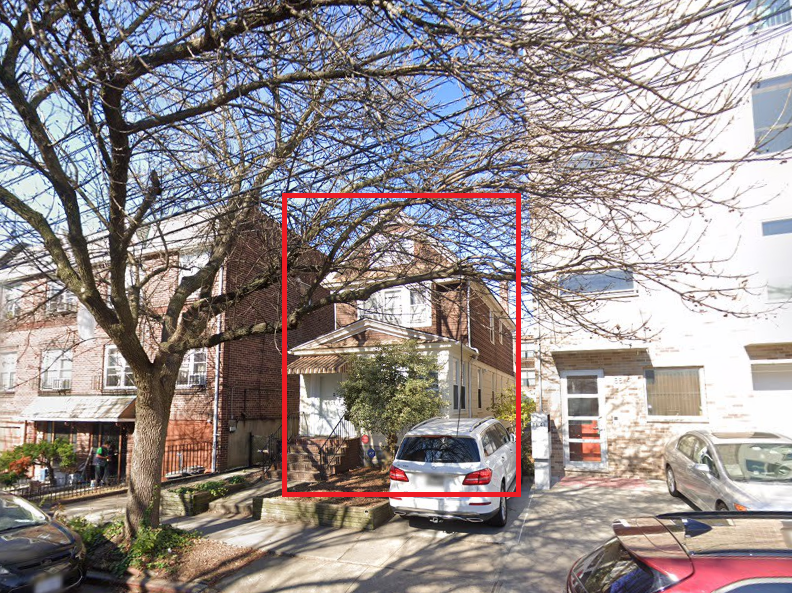Hundreds of attendees filled the auditorium at Flushing Queens Library on March 29 to learn about human trafficking and prostitution, a pivotal issue that has plagued the community and prompted local lawmakers and the NYPD to take action.
The Human Trafficking Seminar held at 41-17 Main St. informed residents of signs they should look out for and resources available to help victims coerced into prostitution as a result of human trafficking.
Councilman Peter Koo organized the event along with the NYPD Patrol Borough Queens North, local nonprofit organizations, and the Mayor’s Office to End Domestic and Gender-Based Violence.
“Human trafficking is something that has been going on for a long time [locally and nationwide] but it hasn’t always received a lot of attention,” said Inspector Chris Morello of Patrol Borough Queens North. “We want our officers in this borough to approach this problem from many different angles — not just enforcement, but we want them to reach out to the community and try to make contact with victims.”
The seminar comes after law enforcement in the past year began cracking down on illicit activity on 40th Road between Prince and Main streets, which has gained notoriety as the red light district hurting businesses on the block and giving the neighborhood a bad reputation.
Koo, who has been working in partnership with the NYPD and local nonprofit organizations to address the prostitution issue, said his office has received complaints from small business owners about women intimidating customers in their door fronts.
“On 40th Road, we’ve identified at least eight fake massage parlors on this small block where dozens of women walk the streets all day and night,” said Koo. “[Business owners’] property was vandalized when they complained and some were even threatened and told their legitimate business was getting in the way of the brothels. Parents complained of drug abuse and open sex solicitation in full view of children at Bland Playground.”
Additionally, Koo said, legal massage parlors have complained that the “fake parlors have given them all a bad name.” He urged victims of prostitution and human trafficking to utilize available resources such as job training, English classes and counseling.
According to Lieutenant Christopher Sharpe of the NYPD Vice Enforcement Division’s Human Trafficking Team, a study conducted by the University of Southern California showed that 56 percent of people trafficked are of Asian background, 9 percent are Latino, and 18 percent are African.
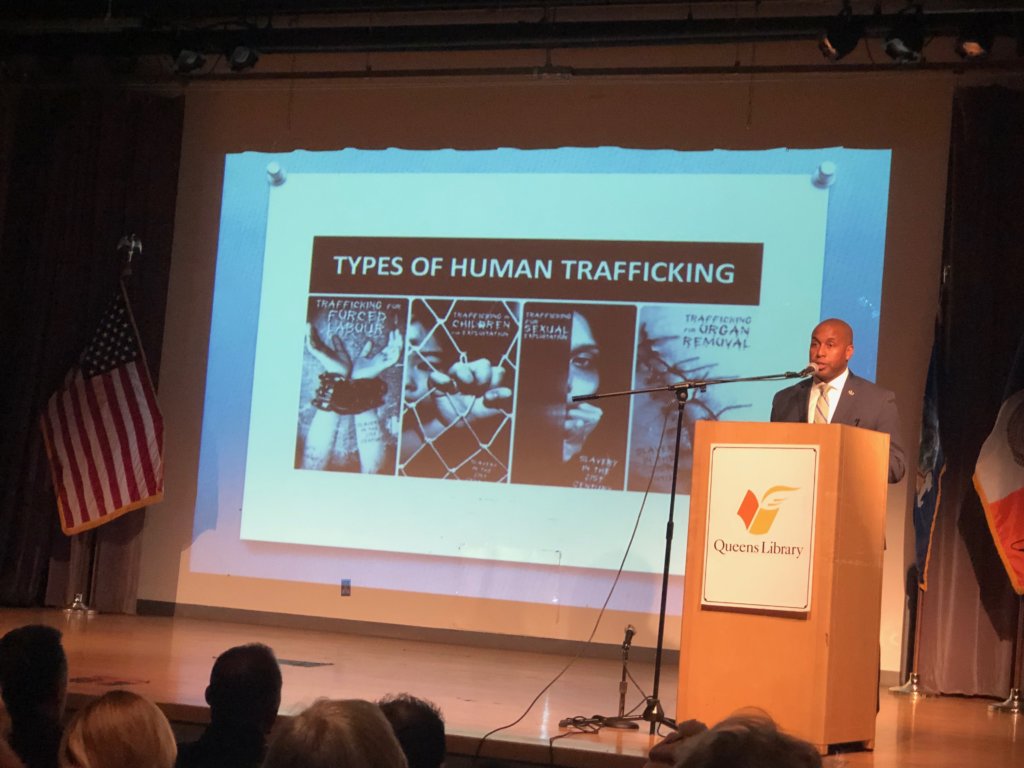
“New York City is one of the top five cities out of 20 in country for labor and sex trafficking,” said Sharpe. “About one-third of teens lured out on the street, who will be homeless within 48 hours, will be engaged in what we call ‘survival sex.’ Some other populations that are vulnerable: immigrants suffering from physical and sexual abuse from the past, victims of drug addiction, or a juvenile with a criminal arrest record.”
According to Chief Martin Morales, commanding officer of Patrol Borough Queens North, in the United States, trafficking is “just violence, deception, and other controlled tactics to force people to engage in sex, forced labor and other services against their will.”
Morales said the NYPD has made new efforts to go against pimps and johns who are responsible for sex trafficking.
In 2017, the department added 25 detectives to the Vice Division’s Human Trafficking Team, exclusively for the investigation of sex trafficking. Additionally, Neighborhood Patrol Officers (NCOs) have also been trained to better recognize trafficking victims from daily encounters with the public and conducting undercover operations targeting johns on the streets.
Victims and individuals who are concerned about trafficking can call the NYPD Human Trafficking Hotline: 646-610-7272.
“You can report any crimes to the police without fear of deportation. We will not ask any victim of their immigration status. It’s not in any police reports or captions. Don’t be afraid to come forward and share information,” said Morales.
Meanwhile, outside of the premises, a small rally was held by members of Red Canary Song — a newly formed coalition of migrant massage workers in Flushing and Chinatown that support the grassroots organization of migrant sex workers.
An organizing contact of Red Canary Song, Elle, has worked five years at massage parlors across the U.S. She said not all massage workers are sex workers, and their businesses contribute to society and should also be protected, not bothered or raided by police.
“As a first-generation immigrant, a transferable career and skills to a new country never worked out for me since landing here, so the massage business provides me with a means of survival,” said Elle in a statement. “It is also a skill, like other jobs. The massage parlor is a platform for our survival in this country when there are not of other services to help immigrants transition into the country. It’s our livelihood and our career. Most of us, we work hard, and we should be treated with respect, like any other service worker in this country.”

